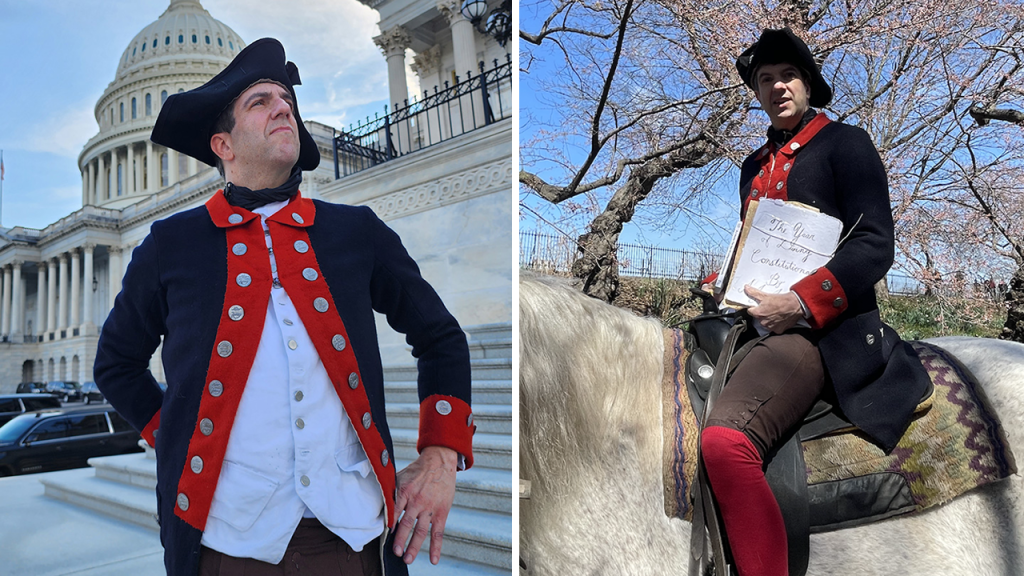A.J. Jacobs, bestselling author and journalist, delves deep into intriguing topics by immersing himself in them for a year or more. His latest adventure involved living by the Constitution and adopting the mindset of the Founding Fathers for a full year, resulting in his book “The Year of Living Constitutionally.” Jacobs found that writing with a quill pen helped him focus and made him a better thinker, as he was free from internet distractions, unlike the Founding Fathers who would have been unable to draft the Constitution on an iPhone due to the many distractions.
During his exploration of the Constitution, Jacobs learned valuable life lessons that are particularly relevant in 2024. He discovered the importance of being open-minded, as the Founders were not afraid to change their opinions based on evidence. Embracing originality and evolving perspectives, Jacobs emphasizes the necessity of being more receptive to new ideas and viewpoints. He highlights instances like James Madison changing his mind on his deathbed as an act of intellectual flexibility worth emulating.
Through his year-long journey, Jacobs recognized the need for Americans to engage with their founding document, the Constitution. He stresses the importance of understanding the Constitution’s impact on daily life and the country’s governance. Jacobs encourages individuals to actively participate in democracy, familiarizing themselves with the Constitution’s principles and meaning. By immersing oneself in the mindset of the Founding Fathers, one can gain a deeper appreciation for the document’s significance.
Jacobs emphasizes the celebration of Election Day as a fundamental right and encourages a more festive and engaging voting experience. Inspired by historical election cakes, Jacobs initiated an “election cake project” where people bake cakes to bring to the polls. This initiative aims to make voting more celebratory and engaging, reminding Americans of the privilege of choosing their leaders. By infusing positivity into the voting process, Jacobs hopes to encourage higher voter turnout and a stronger sense of civic duty.
Reflecting on America’s foundation of freedoms and democracy, Jacobs underscores the significance of choosing leaders freely. He advocates for maintaining a republican form of government and resisting the allure of monarchy. Through his deep dive into the Constitution, Jacobs promotes a grateful acknowledgment of the freedom to elect leaders and encourage responsible citizenship. He proposes shifting focus from monarchy-associated imagery to celebrating America’s democratic principles and the freedom to make informed choices.
A key takeaway from Jacobs’ exploration of the Constitution is the concept of virtue and communal responsibility. Highlighting the ideals of self-sacrifice and serving the common good, Jacobs underscores the Founders’ emphasis on helping others and being active in the community. He advocates for reviving a sense of duty towards one’s neighbors, promoting unity, and solidarity among citizens. By embracing virtuous acts and prioritizing collective well-being, Jacobs believes individuals can strengthen their communities and uphold shared values outlined in the Constitution.
While appreciating the insights gained from his experience living by the Constitution, Jacobs also acknowledges the modern comforts and conveniences of everyday life. He humorously recalls moments like asking for anesthesia-free mole removal during his constitutional experiment, reflecting on the contrast between historical practices and present-day conveniences. Jacobs’s journey through the Constitution serves as a reminder to cherish the liberties granted by the document while also appreciating the advancements and comforts of contemporary society.


